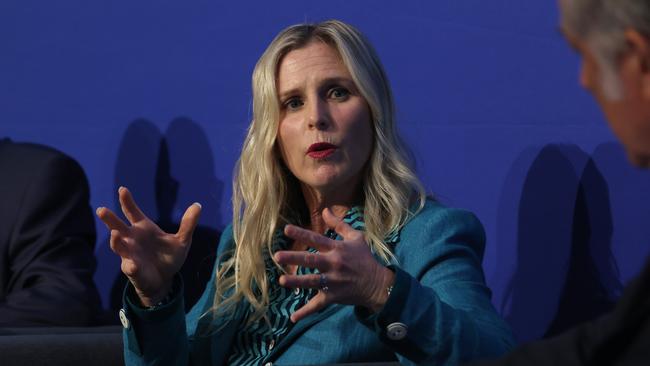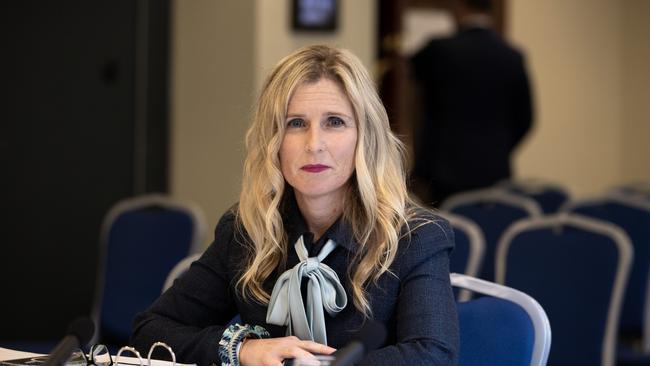ASIC on super watch: mergers, complaints, member communications in regulator’s sight
The corporate regulator told the boards of superannuation funds their mistreatment of members is eroding trust in the system. ‘We’ll continue to do our job of driving trustees to do theirs,’ Commissioner Simone Constant said.

The Australian Securities and Investments Commission will pile pressure on superannuation funds which treat their members poorly, and warned trustees that boards are failing to understand what is happening in the real world.
The corporate regulator will push superannuation trustees over the need for “transparency, consistency, and accountability”, ASIC commissioner Simone Constant said in a speech to the Law Council of Australia on Tuesday.
Ms Constant warned ASIC, which is suing industry super heavyweights Cbus and AustralianSuper over claims handling failures, would continue to put heat on funds “to ensure trustees do what they have said they will do and deliver that step-change that has been promised”.
Those suits argue trustees can’t outsource their obligations to external administrators.
“At ASIC, we’ll continue to do our job of driving trustees to do theirs,” she said.
In a sign of the regulator’s priorities, Ms Constant said ASIC would now look to other areas of member services where fund failures are identified.
This will include how super funds respond to complaints and incidents, as well as ensuring they manage member experience appropriately during and after fund mergers.
Ms Constant said ASIC’s scrutiny extends to call centres and the quality of members’ interactions.

She said the super sector’s success, with its $4.2 trillion and growing pile of assets, was built on the trust of Australians.
“(People) trust that their money is in safe hands. Trust that their money will be there for them when they need it. And trust that their money will look after the people they love if they’re not around to enjoy it,” she said in Adelaide.
“Every time a partner has to plead for basic information, or a parent has to resubmit documentation, that trust is eroded.”
Ms Constant said a “golden thread” running through the issues highlighted in the super sector has been a “disconnect between what’s happening in the boardroom and in the bullpen”.
As alleged in ASIC’s case against Cbus, the fund outsourced its claims handling to provider Link, now known as MUFG Pension & Market Services.
But despite the problems with MUFG being raised at the highest levels inside Cbus, the fund failed to take sufficient action.
Ms Constant said she was often told by trustees “that their organisation works for the best outcomes for their members”.
But many funds failed to ask the right questions or examine what they failed to scrutinise.
“Oversight starts with insight. It speaks volumes that not one trustee in our death benefits review tracked their claims handling times from start to finish,” she said.
“It’s no wonder that some of them were shocked when we showed them their processing times.”
ASIC told trustees in January they were too reliant on external administrators for scam and fraud protections.
Despite this, Ms Constant pointed to several funds being the target of cyber criminals who emptied member accounts.





